Description
38' Harris, foam core,cruising trimaran FS This is not a amateur built boat, she was built by a boat builder for himself and the Craftsmanship is seen throughout. This is a foam core, offshore cruiser. She has a comfortable aft cabin, two sets of bunkbeds forward,huge cockpit, very wide CANTED amas with a walkway forward. Her sails have very little use and she spent 20 years in fresh water at Toronto Multihull, Club. She has US papers but was built in Canada, so she was registered in Canada for those years. I am enclosing an old photobucket site from Roze, I bought her from him almost 5 years ago. She has newer pictures on you tube under Harris and can be found by searching for Harris trimaran. There isn't a trimaran under a $100,000 that will hold a candle to her and she is priced much less. She has a survey by multihull surveyor "John Marples" with a current market value of $65k and is currently insured. I will consider a trailerable multihull in trade. Includes never started 3 cly yanmar diesel ($8000), I have removed the old engine and prepped the engine compartment for installation.
. http://picasaweb.google.com/brian.roze/Wings))
| trimaran 38' Harris/partnership - YouTube |
|
Her main and jib are in excellent condition, her freeboard was painted 2 years ago with epoxy. enclosed is survey..3 of 12 Survey Harris 38 WINGS August 14, 2011 file Harris38Mar811 LIFELINES/PULPITS: bow pulpit, stern pulpit only FIRE EXTINGUISHERS: none seen FIXED FIRE FIGHTING SYSTEM(S): none required DATE OF LAST INSPECTION: na AUXILIARY FIRE PUMP SYSTEM: none required COMMENT: lacks safety equipment to meet NFPA and ABYC guidelines GALLEY LOCATION: main cabin, port, aft TYPE STOVE: 2 burner w/oven MANUFACTURER: Taylor’s FUEL: kereosene REFRIGERATION: built in ice box MFGR: na SINK: single, stainless steel OTHER EQUIPMENT: not seen COMMENT: incomplete MARINE SANITATION SYSTEM NUMBER/TYPE : one manual MANUFACTURER: Brydon “Y” VALVE: yes HOLDING TANK: 6 gal. poly DISCHARGE PUMP: none DECK DISCHARGE LINE: no USCG APPROVED INSTALLATION: Yes, Type III system with discharge valve secured closed COMMENT: not tested. GROUND TACKLE TYPE/NUMBER OF ANCHORS: (1) 35H Danforth kedge, (1) 33 lb. Bruce CHAIN/RODE: (1) 3/8” chain + 5/8” nylon rode, good lengths OTHER EQUIPMENT: none COMMENT: suggest additional anchor tackle for cruising INVENTORY incomplete list below misc. gear, blocks, cable assemblies, rigging equipment Bimini frame, SS tube COMMENTS WINGS appeared to be in good condition although needing general maintenance. The vessel had been stored for an extended time at the marine yard prior to this survey. The boat was a SUNDOWNER design and was fitted with a fixed keel and had an aft cabin
. The forward aka had stainless rods (photo 2 & 3), welded to chainplates, through the aka with a link plate, tightened with nuts over the top. The reason for and condition of the rods is unknown. The interior was small and contained only within the main hull, without wing pods or extensions. The gear stowed below made it difficult to assess the available space and the utility of arrangement. The engine was mounted in an open space with a cover, which was heavy and awkward to move for access to the engine. Steering cables, also in that area, were exposed and should be covered. The rigging cables were very heavy for a boat of this size and weight. If the vessel sails at the design displacement of 8100 lbs., the Bruce No. is 1.27 which indicates a good Page 4 of 12 Survey Harris 38 WINGS August 14, 2011 file Harris38Mar811 performance potential. The boat was a good example of the type and after completion and repairs recommended below, should be capable of performing the service for which it was intended. STANDARDS OF INSPECTION 1. STANDARDS AND RECOMMENDED PRACTICES FOR SMALL CRAFT, published by American Boat and Yacht Council (ABYC), 3090 Solomons Island Road, Edgewater, Md. 21037-1416 ABYC standards are the product of a consensus of representatives of government, industry and public sectors. It is intended solely as a guide to aid the manufacturer, the consumer and the general public in the design, construction and equipage and maintenance of small craft. Standards and technical information reports are advisory only; their use is entirely voluntary. They are guides to achieving a specific level of design or performance, and are not intended to preclude attainment of desired results by other means. The ABYC standards are subject to periodic review and updating. Their use is endorsed by virtually all financial and insurance companies. NFPA 302, FIRE PROTECTION STANDARD FOR PLEASURE AND COMMERCIAL MOTOR CRAFT, published by National Fire Protection Association,(NFPA), 1 Batterymarch Park, Quincy, Ma. 02269-9101 The Fire Protection Standard for Pleasure and Commercial Motor Craft represents the cumulative result of over 69 years of attention to fire safety of powerboats by the NFPA. The first edition of these standards were adopted in 1937, the most recent in 1998. They concern mostly engine, cooking and heating equipment, fire control and electrical systems with particular attention to ignition sources. Many of these standards are very similar in scope and practice to the ABYC standards. FEDERAL REQUIREMENTS AND SAFETY TIPS FOR RECREATIONAL BOATS, published by the United States Coast Guard (USCG), U.S. Department of Transportation, Boating Safety division. This booklet is the free handbook available at most marinas and marine hardware stores. It outlines the safety, lighting and equipment requirements for all recreational vessels. Section 89 of Title 14 of the United States Code authorizes the U.S. Coast Guard to board vessels subject to the jurisdiction of the U.S., anytime upon the high seas and upon waters over which the U.S. has jurisdiction, to make inquiries, examinations, inspections, searches, seizures and arrests. Compliance with these requirements is mandatory. A copy of this booklet is enclosed with this survey report. CODE OF FEDERAL REGULATIONS, CFR 46 and 33: Shipping, published by the Office of the Federal Register, National Archives and Records Administration. This Code of Regulations deals mostly with commercial vessels but its scope includes recreational vessels under sections pertaining to Marine Sanitation Devices (MSDs) and Fuel Page 5 of 12 Survey Harris 38 WINGS August 14, 2011 file Harris38Mar811 tankage. Most of the regulations are covered by the ABYC regulations, regarding equipment. These regulations cover the use of equipment. FINDINGS AND RECOMMENDATIONS FOUND: Fuel fill hose and vent hose were plastic. RECOMMEND: Replace with rubber hose, USCG A1 or A2 to comply with ABYC and NFPA guidelines. FOUND; Exposed steering cables
in galley area. RECOMMEND: Install covers to protect crew from moving cables and sheaves. FOUND: Disconnected wiring on engine should be removed. RECOMMEND: Remove unused wiring. FOUND: Kerosene lamp in aft cabin
lacks heat deflector. RECOMMEND: Install heat deflector before operating lamp. FOUND: Port cabinside finish damaged – checking marks indicated. RECOMMEND: Refinish port cabinside to preclude damage to laminate. FOUND: Winches lack recent service to prevent internal corrosion. Starboard primary winch frozen and may be damaged beyond repair. RECOMMEND: Inspect and service winches. FOUND: Stainless steel rods through forward aka, welded to chainplates, not visible on interior. If these rods are considered vital structural components, they should be inspected periodically. RECOMMEND: Remove chainplate with welded rod and inspect rod for corrosion. FOUND: Running forestay lower terminal curved, causing kink in cable. RECOMMEND: Replace cable assembly. FOUND: Paint on mast and boom peeling and flaking. RECOMMEND: Refinish mast and boom with suitable coating to prevent corrosion. FOUND: Crack in bulkhead adjacent to aft aka, near aft cabin
entry (photo 8). RECOMMEND: Inspect for damage, makes repairs to bulkhead. SUMMATION Subject to the preceding recommendations and the correction of the noted deficiencies, WINGS was found to be in generally good condition and should be deemed to be an acceptable risk for its intended use and route in the hands of an experienced crew under reasonable operating conditions. It should be noted that it is the responsibility of the owner and operator to be familiar with the safety systems aboard and be prepared to use them if necessary. The Estimated Market Value of this vessel was determined through consideration of several factors. The most current published listings, Internet resources and yacht brokers were used to determine the recent selling prices of similar vessels of the same age and type. The condition of the vessel at the time of survey and the extent of her equipment had considerable influence, as did the popularity and marketability of the particular type of vessel in this geographic area. The Estimated Replacement Cost is the estimated cost of a new vessel of similar size, type and quality. Page 6 of 12 Survey Harris 38 WINGS August 14, 2011 file Harris38Mar811 ESTIMATED MARKET VALUE $ 65,000 ESTIMATED REPLACEMENT COST $350,000 DISCLAIMER This survey is made without prejudice and reflects the opinion and judgment of the undersigned. It is not a warranty, implied or otherwise, of the condition of this vessel, its hull or machinery. As far as can be ascertained from a general examination of the vessel, out of the water, without making removals, taking borings, testing for tightness, of trying out machinery, it is the opinion of the undersigned that when the above deficiencies have been corrected, this vessel will be in satisfactory condition for operation. The scope of this report is confined to this surveyor’s opinion only. Any controversy or claim arising out of this survey shall be settled by arbitration in accordance with the rules of the Commercial Arbitration Rules of the American Arbitration Association, and judgment upon the award rendered by the arbitrator(s) may be entered into any court having jurisdiction thereof. John R. Marples, Marine Surveyor Certified Marine Surveyor, (NAMS) Member American Boat and Yacht Council, (ABYC). Enclosures: Designer’s specification sheet and study plan Photo 1. Vessel from forward __________________
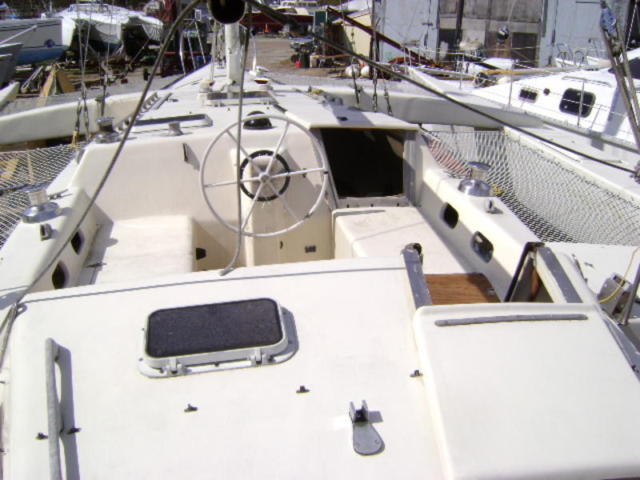
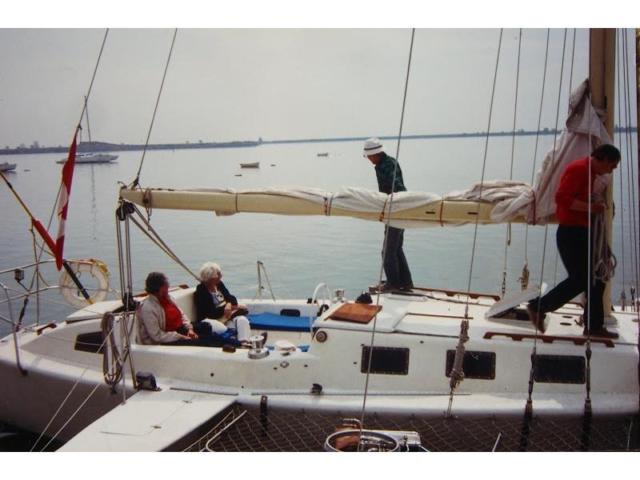
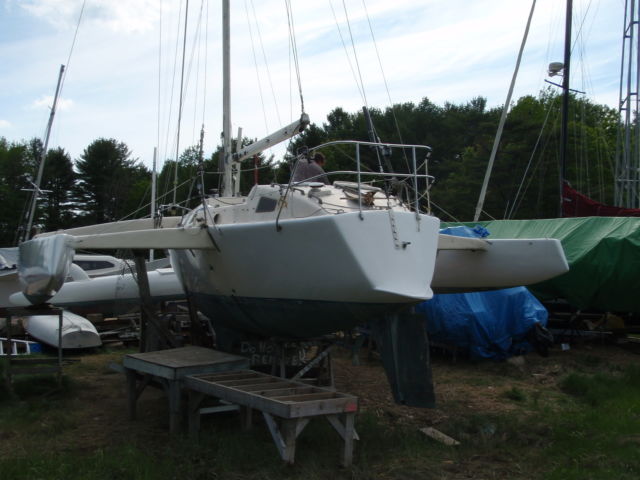
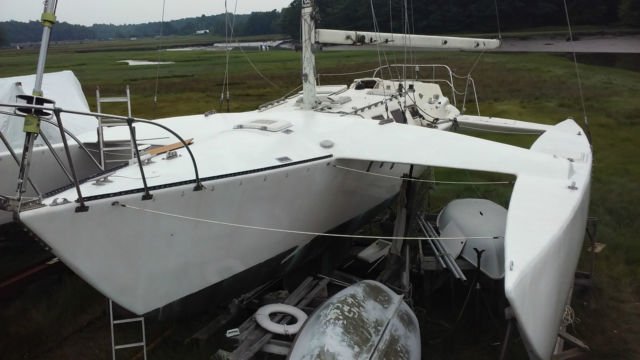
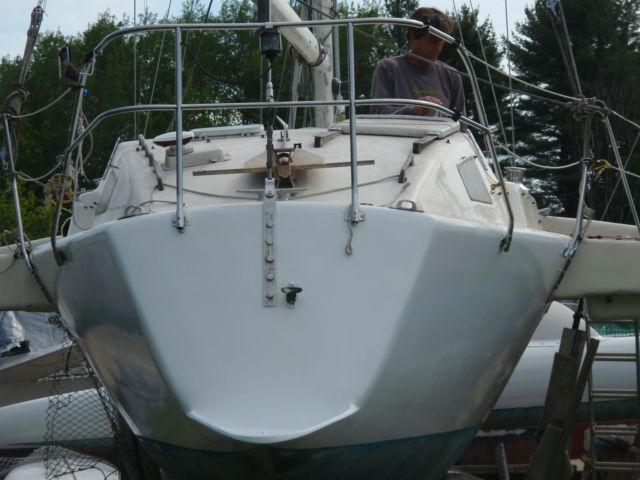
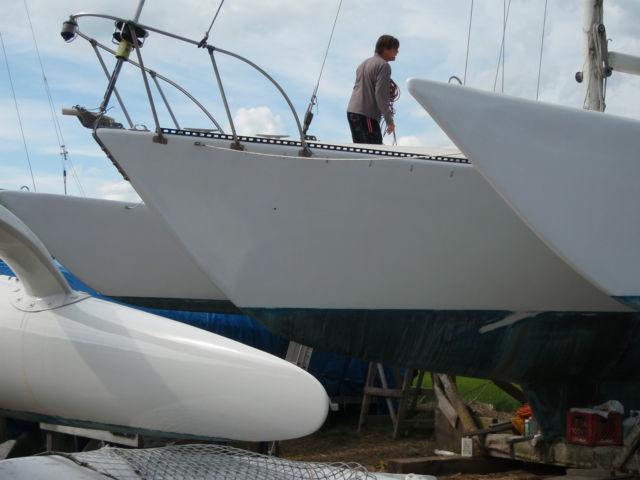
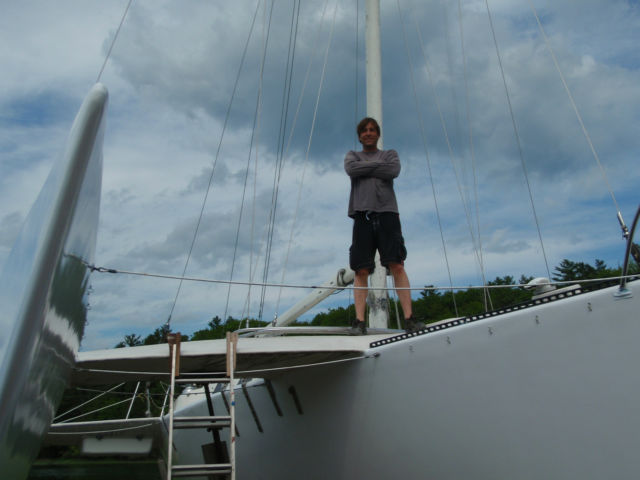
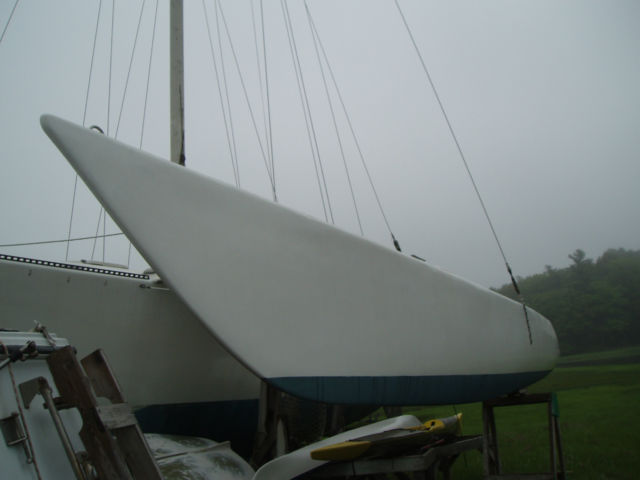
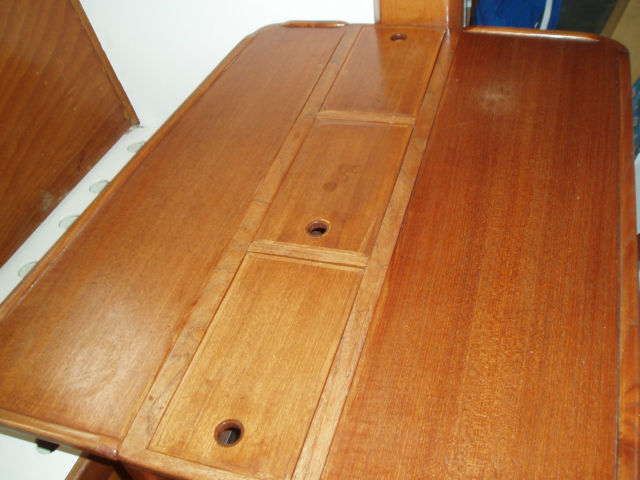
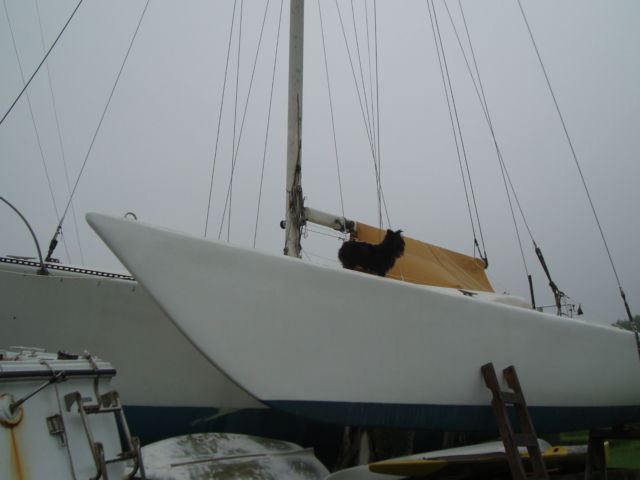
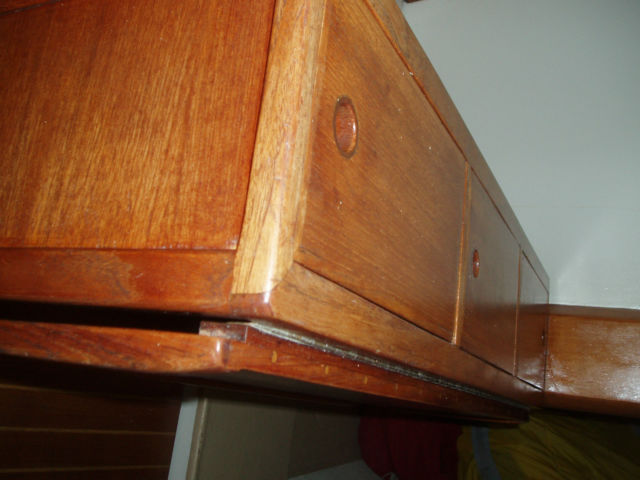
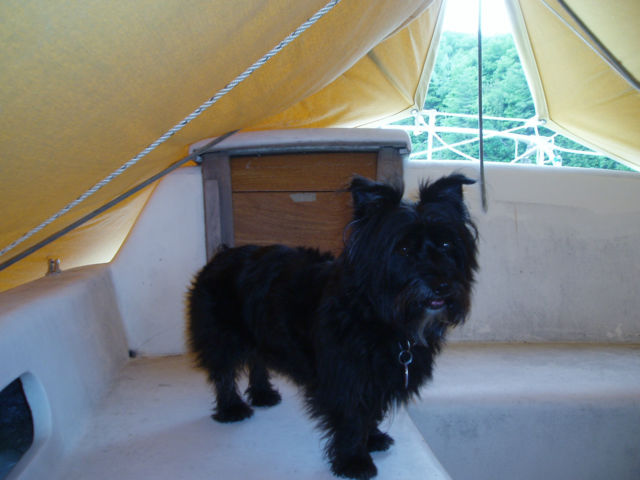
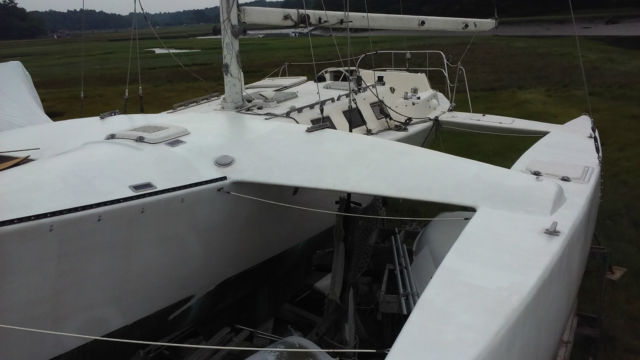
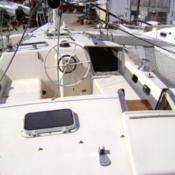 Trimaran in Yarmouth Maine, probuilt/foam core
Trimaran in Yarmouth Maine, probuilt/foam core
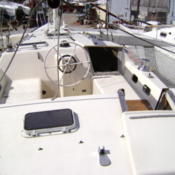 38' trimaran in Maine, probuilt/airex
38' trimaran in Maine, probuilt/airex
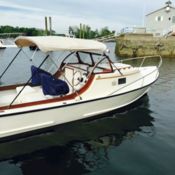 SEAWAY 23 cuddy cabin boat built in Maine/ 90 HP 4 Stroke Suzuki
SEAWAY 23 cuddy cabin boat built in Maine/ 90 HP 4 Stroke Suzuki
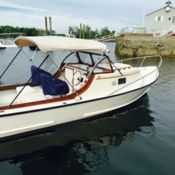 SEAWAY 23 cuddy cabin Downeast Style boat built in Maine/ 90 HP 4 Stroke Suzuki
SEAWAY 23 cuddy cabin Downeast Style boat built in Maine/ 90 HP 4 Stroke Suzuki
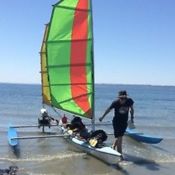 Custom catamaran trimaran proa.. Carefully designed and built/can handle seas
Custom catamaran trimaran proa.. Carefully designed and built/can handle seas
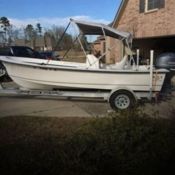 2014 Custom Built Mr. B's R/H Fiberglass 16 Used
2014 Custom Built Mr. B's R/H Fiberglass 16 Used
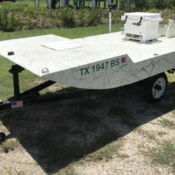 Custom Built Small Fiberglass Flats Boat with Trailer
Custom Built Small Fiberglass Flats Boat with Trailer
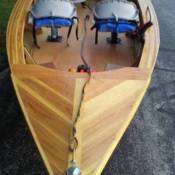 14' Craftsman Built Boat Wood/Fiberglass Construction Motor Warranty New
14' Craftsman Built Boat Wood/Fiberglass Construction Motor Warranty New
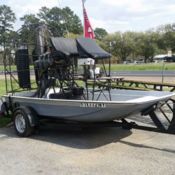 1999 Continental power fiberglass air boat, excellent condition, custom built
1999 Continental power fiberglass air boat, excellent condition, custom built
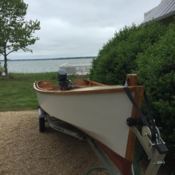 HAND BUILT WOODEN BOAT BUILT FOR THE REEDVILLE MUSEUM
HAND BUILT WOODEN BOAT BUILT FOR THE REEDVILLE MUSEUM